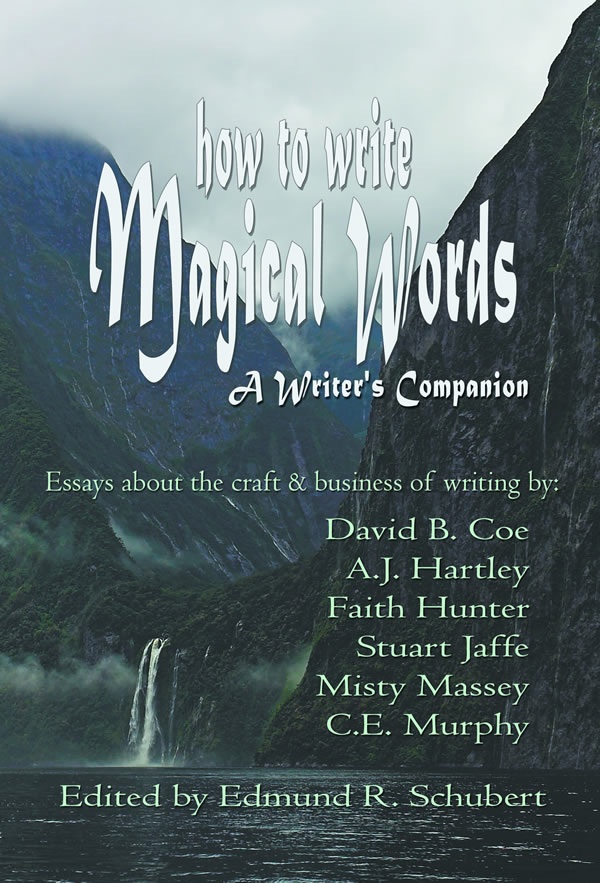by Tracey Morris (originally published at: https://writertracy.livejournal.com/197182.html)
Author Michael A. Ventrella used to think he had an unusual name. Then a man named Michael Ventrella won a reality TV show contest entitled The World’s Biggest Loser. Now, when people see his books, they often ask if he is that Michael Ventrella.
“Such is the price of fame,” Michael said. But unlike his reality show namesake, Michael would like to be known as the author of the novels Arch Enemies and it’s sequel Axes of Evil, which are produced by Double Dragon Press.
The cover blurb for Axes of Evil reads:
One barbarian prophecy says the legendary hero Bishortu will unite the three warring tribes. Another tribe has a prophecy that directly contradicts this, and they want Bishortu dead. And a third tribe, which may or may not be comprised of werewolves, refuses to let anyone know what their prophecy says. Meanwhile, the Duke on whose land the barbarians sit wants them all gone.
In the middle of all of this is squire Terin Ostler, who has been mistakenly identified as the great Bishortu. Under the Duke’s orders to get rid of the barbarians, he heads to their lands without the slightest idea of what to do.
Along the way, he has to avoid crazed assassins, possessed werewolves, lovesick barbarian princesses, and confused goblins while attempting to figure out the meaning of the magical and mysterious Wretched Axes. Nobody said being a hero would be easy.
Michael said that he has been pleased with the favorable reviews that fellow authors have given to the book.
Jonathan Maberry says “THE AXES OF EVIL” is a taut nail-biter of a thriller. Edgy, funny and dark.” Gregory Frost writes “Here Michael A. Ventrella takes up the mantle of Christopher Stasheff. Terin’s exploits are as entertaining as those of Rod Gallowglass, and fans of THE WARLOCK IN SPITE OF HIMSELF will hugely enjoy THE AXES OF EVIL.” And Gail Z. Martin says“Humor, danger and a twisted tangle of unlikely prophecies make for a page-turning adventure.”
I recently had the chance to interview Michael via E-mail. What follows is the text of that interview.
Firstly, let us know how we can find you?
Look for the short guy with glasses and the coat covered in cat hair.
Do you have a website, twitter, facebook fan page, etc?
My web page is MichaelAVentrella.com. It helps to have an unusual name, I thought, because I was able to grab the URL. Now if you search my name you often find it associated with “world’s biggest loser.”
I’m Mike Ventrella on Twitter (damn character limit), and Michael A. Ventrella on Facebook, Goodreads, Book Tour, and something called My Space.
I also have a blog where I discuss writing and interview published authors, editors, and agents.
I’m not that hard to find!
What is about to come out?
My strange Uncle Rupert. And it’s about time, too.
I have a few projects in the fire. First is a short story about pirates and magic (Arrr!) which will be a sequel to “X Spots the Mark” from the collection RUM AND RUNESTONES. This new story is called “Get Kraken!”
Second is a collection of short stories that I am editing which take place in the world of my two novels. I have a number of excellent writers contributing, and I’m very excited about it. (I have a story in it as well, which continues the adventures of the main characters from my books). The collection will be called A BARD’S EYE VIEW and is due out early 2011.
Third is my new novel, which is about a vampire who runs for President. It’s the West Wing meets the bat wing!
Any upcoming appearances we should know about?
I’ll be at various science fiction conventions here on the right coast; you’ll find me as a guest at Philcon, Arisia, Lunacon, Albacon, and Ravencon every year, and sometimes others depending on my time. There’s a schedule on my web page.
Tell us about you as a writer.
I like fun adventure stories with humor and danger. I make no bones about being a writer of escapist literature. All of my work tends to have unexpected plot twists, and I love hearing back from readers who say they were surprised!
I also hate clichés. I want people to act like they really would. My characters argue, make mistakes, and don’t always do the right thing.
More importantly, they are not superheroes. They’re just regular folk who have found themselves in an adventure.
Many fantasy novels, for instance, involve “the chosen one” who has powers no one else has. By using The Force or the family’s Magic Sword of Noonah, they can save the day. I don’t like those kinds of stories. When Superman wins the day, it’s kind of expected, isn’t it? To me, real heroes are everyday people who rise above their circumstances and solve the problems themselves.
ARCH ENEMIES and THE AXES OF EVIL involve a boy named Terin who is not the “chosen one” – the problem is that everyone thinks he is! So they grab him and tell him he must save the day according to the prophecy. He gets pulled into the adventure having no great skills or super powers and is in way over his head. He ultimately is successful by being clever and brave, and to me, that’s more heroic than seeing the hero simply hit the bad guy with the sword until he dies.
Tell me a little bit about you as a person.
Back in the 1980s, I started a magazine about film animation called ANIMATO, and I’m still fairly well known as an animation historian. I’ve been quoted in books and magazines such as ENTERTAINMENT WEEKLY.
In the 90s, I founded the first nationwide fantasy medieval role-playing group (LARP) and now run The Alliance LARP, which has chapters all over the US and Canada. My Rule Books and Players Guides can be found in gaming stores and on Amazon and places like that.
I’m a criminal defense attorney in my spare time.
Do you have any pets?
I wouldn’t be a proper fantasy author if I didn’t have cats, now, would I? Four at the present: Abigail, Einstein, Tess, and McGonigal.
Have they ever found their way into your work?
They’re like my editors. If I leave a manuscript lying around, they rip it to shreds. And I mean that literally.
What do you do to spark your creativity?
Well, it’s more of a matter of dealing with the spark. It’s always there. Writing, however, is work, and really there’s no other way around it than to sit at the computer, move McGonigal out of the way, and write.
Any advice out there for people who want to get started writing?
Lots, and that’s what my blog is all about. Please visit!
The most important is to just keep writing, and finish what you start. I talk to lots of people who want to be writers and so many of them have half-finished works. Don’t polish what you have, finish it first! No editor is willing to look at a half-finished book no matter how great it is.
What are your favorite books to read? What are you currently reading?
I like the same thing I’m writing, of course. I’m a big fan of the Harry Potter books, and mine have been favorably compared. But I also read a lot of biographies, political books and history – and lots of magazines. My bachelor’s is in Political Science so I have never lost an interest in it.
I wish I just had more time to read! Between writing books and short stories, running a law office, and heading up a national LARP organization, I’m surprised I get any sleep at — zzzzzzzzzzzzzzzzzzzzzzzzzzzzzzzzzz.
You can listen to the audio from when Michael was a guest of Blog Host, Gail Z. Martin’s Ghost in the Machine podcast here: https://www.audioacrobat.com/play/WW8gCj6X














